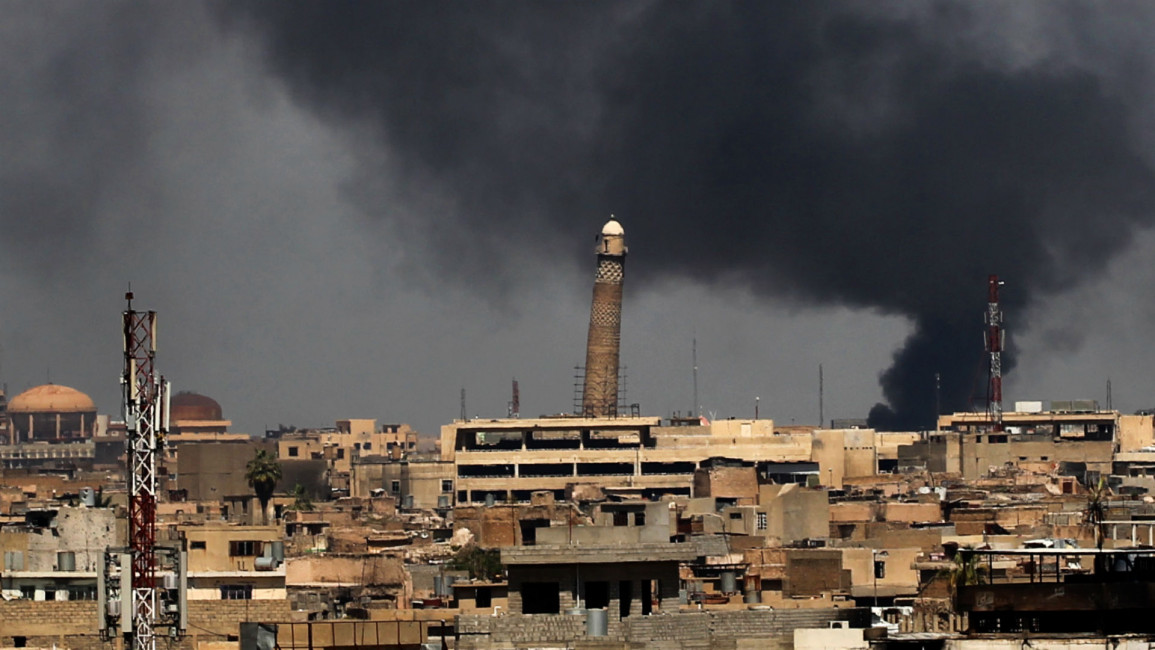Iraq forces plan push on symbolic IS-held Mosul mosque
Iraqi forces plan to advance on a symbolic mosque controlled by the Islamic State group in the city of Mosul, as officials have warned indiscriminate shelling of the city's west could lead to "civilian massacres".
Iraqi troops backed by air power from the US-led coalition fighting IS plan to encircle Western Mosul and retake the al-Nuri Mosque, where IS leader Abu Bakr al-Baghdadi proclaimed the creation of the new "caliphate".
Iraqi forces began the country's biggest military operation in years exactly six months ago and recaptured the east side of the city in January.
"The shelling aims to break up pockets of IS fighters and destroy the barriers they have put up in the Old City," an Iraqi military officer told The New Arab.
"We want to force our way to the edge of the Old City and reach the al-Nuri Mosque," he added.
Iraqi forces have been making significant gains in west Mosul over the past two months but the toughest battles lie ahead with die-hard extremist hunkering down in the narrow streets of the Old City.
Twitter Post
|
As many as 500,000 people remain in IS-controlled parts of western Mosul, where fighting is still underway and food, water and medicine stocks are running low.
Mohammad al-Hamdani, a member of the Nineveh provincial council, told The New Arab that civilians trapped in the area were at risk of being "massacred" under the constant shelling.
"No safe corridors have been provided for civilians, who are huddled in their homes for safety. I think they will starve to death if they are not killed by the bombardment," Hamdani said.
The six-month-old operation to retake Mosul has forced around half a million people to flee their homes, mainly from the eastern part of Mosul, the United Nations said on Monday.
"The sheer volume of civilians still fleeing Mosul city is staggering," Lise Grande, the UN's humanitarian coordinator in Iraq, said in a statement.
"Our worst case scenario when the fighting started was that up to one million civilians may flee Mosul. Already, more than 493,000 people have left, leaving almost everything behind," she said.
IS captured Mosul after the Iraqi military collapsed during the summer of 2014, allowing the city and vast swaths of Iraq to fall into the hands of the jihadis. But the group has since gradually lost most of the ground it held as Iraqi government forces and militias backed by a US-led coalition counter attacked.



